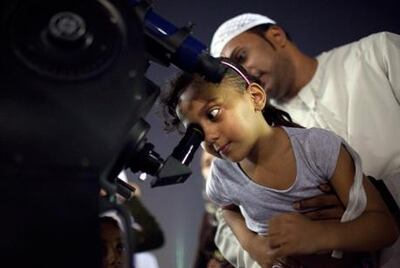The last supermoon of the year is set to light up the skies over the UAE on Saturday with the next one not set to appear until October next year.
This will be the fourth and final supermoon of the year and will coincide with the Leonids meteor shower, which is expected to create a dazzling spectacle in the skies.
A supermoon is a celestial event where the Moon is at its closest point to Earth in its orbit, making it appear about 14 per cent bigger and 30 per cent brighter than normal, according to Nasa.
“This supermoon is called the Beaver Moon, named by Native Americans and colonists because it was when beavers prepared for winter and people set traps before waterways froze,” Khadijah Ahmed, operations manager at the Dubai Astronomy Group, told The National.
When to see the supermoon and Leonids meteor shower
Ms Ahmed said that the Leonids meteor shower will peak in the early hours of Saturday and Sunday, as they are typically visible from midnight to dawn.
Leonid meteors originate from comet 55P/Tempel-Tuttle, which was discovered in 1865. Pieces of debris from the comet interact with the Earth's atmosphere, creating the meteor shower.
Nasa said there is also a Leonid storm every 33 years which can peak with hundreds to thousands of meteors per hour. The last storm took place in 2002, but one of the most spectacular storms happened in 1966 when thousands of meteors a minute fell through Earth's atmosphere in the space of 15 minutes.
“It will make an especially unique night as both the bright full moon and meteor trails will be visible,” said Ms Ahmed. The Leonids are active from November 6 to 30, so we expect to see some meteors already, just aim for dark locations with clear skies and lay down.”
“Give your eyes 30 minutes or so to adjust to the view and enjoy – there’s no equipment needed,” she said.

A unique night
For those who want telescopes for an enhanced viewing experience, the Dubai Astronomy Group is hosting an observation event on Saturday at Al Qudra Desert from 8pm to 12am, with tickets priced from Dh100 to Dh150.
“We will have six telescopes to take images and observe celestial objects including the supermoon,” said Ms Ahmed.
The next series of supermoons will return next year, bringing a new round of full moons to watch.

